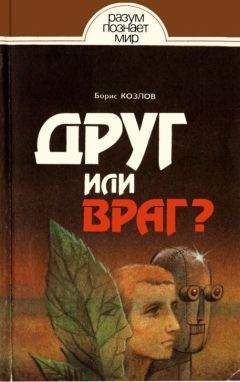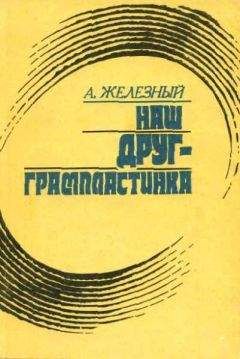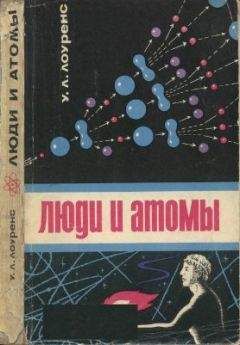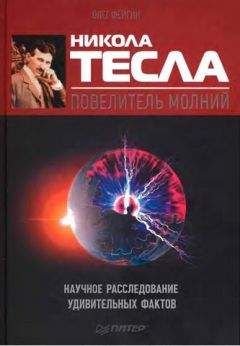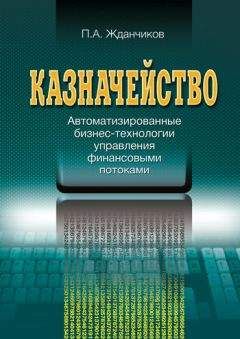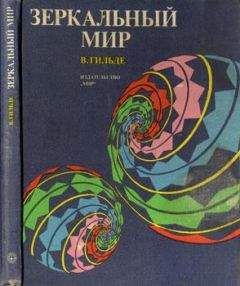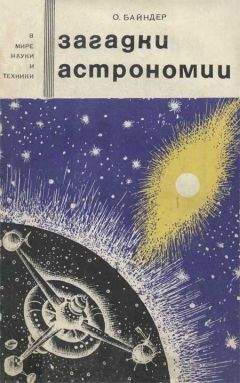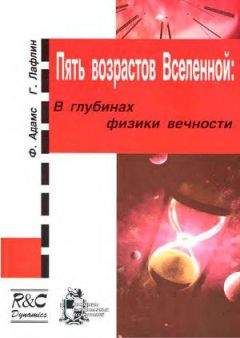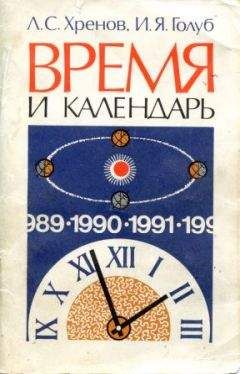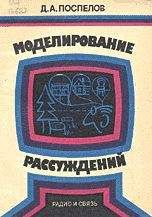Говард Рейнгольд - Умная толпа
Скачивание начинается... Если скачивание не началось автоматически, пожалуйста нажмите на эту ссылку.
Жалоба
Напишите нам, и мы в срочном порядке примем меры.
Описание книги "Умная толпа"
Описание и краткое содержание "Умная толпа" читать бесплатно онлайн.
Мобильная связь и повсеместная компьютеризация уже начинают менять способы общения, трудовой и творческой деятельности, торговли, управления. Информационные технологии и их многообразное воздействие на различные сферы жизни общества — такова тема книги, предлагаемой вниманию читателей. Через десять лет, утверждает автор на основании многочисленных исследований, наблюдений и интервью, основные места средоточия населения Земли будут наводнены микросхемами, способными общаться друг с другом. Люди, оснащенные такими устройствами, составят «умные толпы», и их общение обретет невиданные прежде формы и возможности.
Для широкого круга читателей.
Глава 2
1. David Hume, A Treatise of Human Nature, ed. Ernest С Mossner (New York: Viking, 1986).
2. Netscan, «http://netscan.research.microsoft.com» (5 February 2002).
3. Howard Rheingold, The Virtual Community: Homesteading on the Electronic Frontier (Reading, Mass.: Addison-Wesley, 1993).
4. Erving Goffman, The Presentation of Self in Everyday Life (Garden City, N. Y: Doubleday, 1959).
5. Matt Ridley, The Origins of Virtue: Human Instincts and the Evolution of Cooperation (London: Penguin, 1996).
6. Garrett Hardin, «The Tragedy of the Commons», Science 16? (13 December 1968): 1243-1248.
7. Thomas Hobbes, Leviathan, ed. Richard E. Flathman and David Johnston (New York: W. W Norton, 1997) [на рус. яз. Томас Гоббс. Сочинения в 2 т. М.: Мысль, 1991, т. 2].
8. John Locke, Two Treatises of Government (New York: Prentice-Hall, 1952) [на рус. яз.: Два трактата о правлении // Джон Локк. Соч. в 3 т. / Пер. с англ Е. Лагутина и А. Субботина. — М., 1985-1988. — Т. 3].
9. Mancur Olson Jr., The Logic of Collective Action: Public Goods and the Theory of Group (Cambridge: Harvard University Press, 1965) [на рус. яз.: Манкурю О. Логика коллективных действий: Общественные блага и теория групп / Пер. с англ. Е. Окороченко. — М.: Фонд экономических инициатив (ФЭИ), 1995].
10. Mancur Olson Jr., «The Logic of Collective Action», in Rational Man and Irrational Society, ed. Brian Barry and Russell Hardin (Beverly Hills, Calif: Sage, 1982), 44.
11. Elinor Ostrom, Governing the Commons. The Evolution of Institutions for Collective Action (Cambridge: Cambridge University Press, 1990).
12. Ridley, The Origins of Virtue.
13. Ostrom, Governing the Commons, 27.
14. H. Scott Gordon, «The Economic Theory of a Common-Property Resource: The Fishery», Journal of Political Economy 62 (1954): 124-142; Anthony D. Scott, «The Fishery: The Objectives of Sole Ownership», Journal of Political Economy 65 (1955): 116-124.
15. Charlotte Hess, «Is There Anything New Under the Sun? A Discussion and Survey of Studies on New Commons and the Internet», presented at Constituting the Commons: Crafting Sustainable Commons in the New Millennium, the Eighth Conference of the International Association for the Study of Common Property, Bloomington, Indiana, 31 May-4 June 2000.
16. Ostrom, Governing the Commons, 25.
17. Marc A. Smith, «Mapping Social Cyberspaces: Measures and Maps of Usenet, a Computer Mediated Social Space» (Ph. D. diss., UCLA, 2001), 18.
18. Thomas Henry Huxley, «The Struggle for Existence in Human Society», in Evolution and Ethics, and Other Essays (London, 1894), 202-218.
19. Peter Kropotkin, Mutual Aid: A Factor of Evolution (Montreal: Black Rose Books, 1989), 78.
20. Stephen J. Gould, Bully for Brontosaurus: Reflections on Natural History (New York: W. W. Norton, 1991).
21. Kropotkin, Mutual Aid, 171.
22. J. Paradis and G. С Williams, Evolution and Ethics: Т. Н. Huxley's Evolution and Ethics with New Essays on Its Victorian and Sociobi-ological Context (Princeton: Princeton University Press, 1989).
23. W. D. Hamilton, «The Genetical Evolution of Social Behavior», Journal of Theoretical Biology 7 (1964): 1-52.
24. Richard Dawkins, The Selfish Gene (Oxford: Oxford University Press, 1976).
25. Hobbes, Leviathan, 95. Левиафан, часть II «О государстве», глава XVII, «О причинах, возникновении и определении государства» // Т. Гоббс. Соч. в 2 т. / Пер. на рус. яз. А. Гутермана. — М.: Мысль, 1991. — Т. 2. — С. 132.
26. John von Neumann and Oskar Morgenstern, Theory of Games and Economic Behavior (Princeton: Princeton University Press, 1944) [рус. пер.: Теория игр и экономическое поведение. М.: Наука, 1970].
27. William Poundstone, Prisoner's Dilemma: John von Neumann, Game Theory, and the Puzzle of the Bomb (New York: Doubleday, 1992).
28. J. Bronowski, The Ascent of Man (Toronto: Little, Brown, 1973).
29. Herman Kahn, On Thermonuclear War (Princeton: Princeton University Press, 1960).
30. Jean-Jacques Rousseau, A Discourse on Inequality (London: Penguin, 1984). [на рус. яз.: Рассуждение о происхождении и основаниях неравенства между людьми // Ж.-Ж. Руссо. Трактаты / Пер. с франц. А. Хаютина. — М.: Наука, 1969. — С. 75).
31. Merrill M. Flood, «Some Experimental Games», Research Memorandum RM-789 (Santa Monica, Calif.: RAND Corporation, 1952).
32. A. W Tucker, «On Jargon: The Prisoner's Dilemma», UMAP Journal 1 (1950): 101.
33. Robert Axelrod, The Evolution of Cooperation (New York: Basic Books, 1985).
34. R. L. Trivers, «The Evolution of Reciprocal Altruism», Quarterly Beview of Biology 46 (1971): 35-37.
35. Axelrod, The Evolution of Cooperation.
36. G. S. Wilkinson, «Reciprocal Food Sharing in the Vampire Bat», Nature 308 (March 8, 1984): 181-184.
37. Manfred Milinski, «TIT FOR TAT in Sticklebacks and the Evolution of Cooperation», Nature 325 (29 January 1987): 433-435.
38. P. Farb, Man's Rise to Civilization as Shown by the Indians of North America from Primeval Times to the Coming of the Industrial State (New York: Dutton, 1968).
39. Steven Levy, Hackers: Heroes of the Computer Revolution (New York: Doubleday, 1984).
40. J. H. Saltzer, D. P. Reed, and D. D. Clark, «End-to-End Arguments in System Design», ACM Transactions on Computer Systems 2 (November 1984): 277-288.
41. Howard Rheingold, Tools for Thought (Cambridge: MIT Press, 2000).
42. Katie Hafner and Matthew Lyon, Where Wizards Stay Up Late-The Origins of the Internet (New York: Touchstone, 1998).
43. Levy, Hackers.
44. Hafner and Lyon, Where Wizards Stay Up Late.
45. J. С R. Licklider and R. W. Taylor, «The Computer as a Communication Device», Science and Technology (April 1968): 21-31.
46. William Henry Gates III, «An Open Letter to Hobbyists», Altair Users' Newsletter, 3 February 1976.
47. Dennis M. Ritchie, «The Evolution of the Unix Time-Sharing System», AT amp;T Bell Laboratories Technical Journal 63 (October 1984)-1577-1593.
48. Nick Moffit, «Nick Moffit's $7 History of Unix», «http://crackmonkey.org/unix.html» (29 January 2002).
49. Ritchie, «The Evolution of the Unix Time-Sharing System».
50. Moffit, «Nick Moffit's $7 History of Unix».
51. Richard Stallman, «The Free Software Definition». The GNU Project, Free Software Foundation, 2000, «http://www.gnu.org/philoso-phy/free-sw.html» (17 June 2001) [на рус. яз.: Ричард Столлмен. GNU GPL и американский образ жизни / Компьютерра. 2001. № 10 (387). 14 марта].
52. Ibid. See also: Michael Stutz, «Freed Software Winning Support, Making Waves», Wired News, 30 January 1998, «http://www.wired.com/ news/technology/0,1282,9966,00.html» (5 February 2002).
53. Eric Raymond, The Cathedral and the Bazaar. Musings on Linux and Open Source by an Accidental Revolutionary (Sebastopol, Calif.: O'Reilly and Associates, 1997). See also: «http://www.tuxedo.org/~esr/ writings/homesteading/» (29 January 2002).
54. BIND (Berkeley Internet Name Domain), «http://www.isc.org/ products/BIND/» (16 January 2002).
55. Network Working Group, ed. B. Carpenter, «Architectural Principles of the Internet», June 1996, «http://www.ietf.org/rfc/rfcl958.txt» (26 November 2001).
56. Tim Berners-Lee, «Information Management: A Proposal», 1989, «http://www.w3.org/History/1989/proposal.html» (29 January 2002).
57. Andy Server, «It Was My Party — and I Can Cry If I Want To», Business 2.0, March 2001, «http://www.business2.com/articles/ mag/0,1640,9662,FF.html» (12 August 2001).
58. Daniel Dern, «A Real Brief History of Usenet», BYTE Magazine, 4 September 1999.
59. Smith, «Mapping Social Cyberspaces», 12.
60. Lawrence Lessig, The Future of Ideas (New York: Random House, 2001).
61. «FCC Launches Proceeding to Promote Widespread Deployment of High-speed Broadband Internet Access Services», 14 February 2002, «http://www.fcc.gov/Bureaus/Common_Carrier/News_Releases/2002/ nrcc0202.html» (24 February 2002).
62. «Cable TV Lobby, Including Comcast, Tells FCC: Give Us a „Closed“ Broadband Net», Center for Digital Democracy, 15 February 2002, «http://www.democraticmedia.org/news/washingtonwatch/ca-bleletter.html» (25 February 2002). See also: Cable Industry FCC Lobbying Document, Center for Digital Democracy, 8 February 2002, «http:// www.democraticmedia.org/resources/filings/cableFCCLobbyingDocu-ment.pdf» (25 February 2002).
63. «FCC Sides with Cable Net Firms», Associated Press, 14 March 2002, «http://www.wired.com/news/politics/0,1283,51061,00.html» (29 March 2002).
64. L. Garton, С Haythornthwaite, and B. Wellman, «Studying Online Social Networks», Journal of Computer-Mediated Communication 3, 1 (1997): 1.
65. Barry Wellman, «Physical Place and CyberPlace: The Rise of Personalized Networking», International journal of Urban and Regional Research 25, 2 (2001): 227-252, «http://www.chass.utoronto.ca/~wellman/ publications/individualism/ijurr3al.htm» (29 March 2002).
66. Alun Anderson, «The Mathematics of Mayhem», in The World in 2001, «http://www.theworldin.com/arts/sci/fsl.html» (5 May 2001).
67. Gordon E. Moore, «Cramming More Components onto Integrated Circuits», Electronics 38, 8 (19 April 1965): 114-117.
68. «Moore's Law», Intel Corporation, «http://www.intel.com/research/silicon/mooreslaw.htm» (21 December 2001).
69. Scott Kirsner, «The Legend of Bob Metcalfe», Wired 6.11, November 1998, «http://www.wired.eom/wired/archive//6.11/metcalfe.html? person=bob_metcalfe amp;topic_set=wiredpeople» (27 January 2002).
70. David P. Reed, «That Sneaky Exponential: Beyond Metcalfe's Law to the Power of Community Building», originally appeared in Context Magazine, Spring 1999 (by permission of DiamondCluster International, Inc. © 1999) «http://www.contextmag.com/archives/199903/ digitalstrategyreedslaw.asp» (25 January 2002).
71. Francis Fukuyama, Trust. The Social Virtues and the Creation of Prosperity (New York: Free Press, 1995).
72. Reed, «That Sneaky Exponential», 1999.
Глава 3
1. Epigraph: Cory Doctorow, «My Date with the Gnomes of San Jose», Mindjack, 15 October 2000. «http://www.mindjack.com/feature/ p2p.html.» (25 January 2002).
2. Charlene Anderson, «SETI@home and the Planetary Society: A Reminiscence and a Hope for the Future», May 2000, «http:// www.planetary.org/UPDATES/seti/seti@home_and_planetary_society.html» (20 January 2002). See also: Roving Mouse, «SETI@home Stats», «http:// www.roving-mouse.com/setiathome/» (25 January 2002).
3. Robert Wright, Nonzero: The Logic of Human Destiny (New York: Vintage, 2000).
4. David P. Reed, «That Sneaky Exponential: Beyond Metcalfe's Law to the Power of Community Building», Context Magazine, Spring 1999 (by permission of DiamondCluster International, Inc. © 1999) «http:.//www.contextmag.com/archives/199903/digitalstrategyreedslaw.asp» (1 February 2002).
5. John F. Shoch and Jon A. Hupp, «Notes on the 'Worm' Programs — Some Early Experience with a Distributed Computation», Xerox PARC, September 1980.
6. Ibid., 1. See also: John Branner, Shockwave Rider (New York: Del Rey, 1975), 249-252.
7. Miron Livny and Udi Manber, «Distributed Computation Via Active Messages», IEEE Transactions on Computers 34, 12 (1985): 1185-1190.
8. «Deepest Computation in History for a Yes/No Answer», Technical News Release, 29 September 1999, «http://www.perfsci.com/ F24release.html» (1 February 2002).
9. «GIMPS Finds First Million-Digit Prime, Stakes Claim to $50,000 EFF Award», 30 June 1999, «http://www.mersenne.org/6972593.htm» (30 January 2002).
10. «Distributed Computing for Global Climate Research at Rutherford Appleton Laboratory», «http://www.climate-dynamics.rl.ac.uk/ index.html» (25 January 2002).
11. United Devices, «http://www.ud.com/» (1 February 2002).
12. «The United Devices Cancer Research Program», «http://www.intel.com/cure/united.htm» (23 December 2001).
13. Henry Norr, «Idle Computer Time Can Fight Cancer», San Francisco Chronicle, 4 April 2001, Bl.
14. Paul Marks, «Anthrax Screensaver Finds Promising New Drugs», NewScientist.com, 19 February 2002, «http://www.newscientist.com/ news/news.jsp?id=ns99991953» (19 February 2002).
15. Google Compute, «http://toolbar. google.com/dc/faq_dc.html» (6 March 2002).
16. Harry McCracken, «The Digital Century», PC World, December 1999, «http://www.pcworld.com/resource/article.asp?aid=13531» (5 February 2002).
17. Matt Richtel, «With Napster Down, Its Audience Fans Out», New York Times, 20 July 2001, «http://www.nytimes.com/2001/07/20/ college/coll20MUSI.html» (2 February 2002); Ron Harris, «Technology: Copyright Laws at Stake in Napster Case», Nando Times, 2 March 2001, «http://archive.nandotimes.eom/technology/story/0,1643,500458967500698582503788773-0,00.html» (5 February 2002).
18. Dan Bricklin, «The Cornucopia of the Commons», in Peer-to-Peer: Harnessing the Power of Disruptive Technologies, ed. Andy Oram (Sebastopol, Calif: O'Reilly and Associates, 2001).
19. Ashlee Vance, «Napster Serenades Songwriters, Ready to End Lawsuit», Unlimited Net, 26 September 2001, «http://www.unlimited.net.nz/unlimited/unlimited.nsf/ArchiveByAuthor/3CC3423C3EA87267CC256AD2006D2BA9?OpenDocument» (5 February 2002).
20. «Napster Offers $1 Billion to Settle Suit», CNN.com, 21 February 2001, «http://www.cnn.com/2001/LAW/02/20/napster.settlement.03/» (5 February 2002).
21. Gene Kan [1977-2002], «Gnutella», in Peer-to-Peer Harnessing the Power of Disruptive Technologies, ed. Andy Oram (Sebastopol, Calif.: O'Reilly and Associates, 2001); «What Is Gnutella?» Gnutella News, «http://www.gnutellanews.com/information/what_is_gnutella.shtml» (2 February 2002).
Подписывайтесь на наши страницы в социальных сетях.
Будьте в курсе последних книжных новинок, комментируйте, обсуждайте. Мы ждём Вас!
Похожие книги на "Умная толпа"
Книги похожие на "Умная толпа" читать онлайн или скачать бесплатно полные версии.
Мы рекомендуем Вам зарегистрироваться либо войти на сайт под своим именем.
Отзывы о "Говард Рейнгольд - Умная толпа"
Отзывы читателей о книге "Умная толпа", комментарии и мнения людей о произведении.






